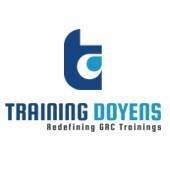HR Auditing: Important Issues for 2018
OVERVIEW
There are numerous external and internal forces and factors that have an impact on organizations. Increasingly this list includes the strategic, tactical, and legal activities of managing their human capital. Like the management of their financial capital, effective management of organizations’ human capital plays a critical role in determining their success. And like the benefits of financial audits, HR audits provide management with a method of determining whether human capital is effectively used, where human capital is incorrectly – or unlawfully — used, and how to improve human capital return on investment.
HR audits are designed to help organizations focus their attention on their human resource management practices, policies, procedures, processes, and outcomes by providing them with a structured and systematic series of questions about key compliance, risk management, internal auditing, and human resource management issues. As an auditing process, HR audits are designed to help organizations identify potential and actual problem areas, help assess the effectiveness of HR management activities, help assess weaknesses in HR internal control processes, and help assess human capital strategic and compliance related risks. HR audits then typically provide suggestions for corrective action.
Importantly, HR audits consider human capital related risks and opportunities from an enterprise risk management (ERM) perspective. That is, HR audits take a holistic approach in assessing human capital risks and attempts to indicate the interrelationships and interactions between HR and other management and organizational issues.
Recognizing that no two employers are alike and that the practices, policies, and processes that may be appropriate and effective for multinational corporations may not be appropriate for small and medium size companies or non-profits, HR audits are typically designed to help organizations develop and tailor their employment practices, policies, procedures, and processes to meet their specific needs. Thus, HR audits typically provide organizations with the “right” questions to ask about various employment practices issues; then help them determine the optimal answer.
While an HR audit alone will not guarantee that an organization’s workplace will be selected as a “best place to work” or be free from all legal challenges, it will serve as an important guide through the maze of human resource management best practices and employment and labor laws and regulations. As a result, an HR audit will further enhance the value of your organization’s human capital, enhance your organization’s competitiveness, and reduce your organization’s exposure to employment practices liabilities.
WHY SHOULD YOU ATTEND
In the global economy, human capital has become for many organizations the single most important determinant of competitiveness, productivity, sustainability, and profitability. Increasingly, an organization’s human capital is the source of innovation and a driver of business success.
Additionally, there is a confluence of economic, political, and social factors that have resulted in increased statutory and regulatory requirements, a call for greater transparency, and increased internal and external audit activity.
Finally, governmental agencies have become more active—some would argue more aggressive—and have committed more resources to conducting assessments of employment policies and practices. Importantly, the EEOC, the OFCCP, U.S. DOL, and ICE have advised employers that they consider self-assessments and audit a “best practice.”
How effectively is your organization managing its human capital? Is your human capital helping you achieve organizational objectives? Are your employment practices creating material risks and liabilities? This session discusses the development and use of HR Audits in answering these questions and in addressing critical risk management and due diligence issues.
LEARNING OBJECTIVES
This session discusses the development and use of HR Audits in addressing such critical risk management issues as:
- How effective is your organization’s human resource management?
- Is your human capital helping you achieve organizational objectives?
- Are your employment practices creating material risks and liabilities?
- What are the key organizational issues that should be audited?
- What HR audit tool should be used
For more detail please click on this below link:
Email: [email protected]
Toll Free: +1-888-300-8494
Tel: +1-720-996-1616
Fax: +1-888-909-1882
Speaker and Presenter Information
Ronald Adler is the president-CEO of Laurdan Associates, Inc., a veteran-owned, human resource management consulting firm in Rockville, Md., specializing in HR audits, employment practices risk management, benchmarking and HR metrics, strategic HR, employee surveys, and unemployment insurance issues. Mr. Adler has more than 42 years of HR consulting experience working with U.S. and international firms, small businesses and non-profits, insurance companies and brokers, and employer organizations. Mr. Adler is a consulting expert on work force, employment practices, and unemployment insurance issues to Bloomberg BNA, HR Magazine, and other publications and newspapers across the country. His research findings have been used by the Federal Reserve Board, the Equal Employment Opportunity Commission (EEOC), the National Conference of State Legislatures, the National Association of Manufacturers, the National Federation of Independent Business, insurers, and international organizations.
Relevant Government Agencies
Dept of Education
Event Type
Webcast
This event has no exhibitor/sponsor opportunities
When
Tue, Jan 16, 2018, 1:00pm - 2:30pm
ET
Website
Click here to visit event website
Event Sponsors
Organizer
Training Doyens





